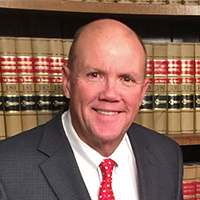 Fort Rucker Felony Lawyers, Alabama
Fort Rucker Felony Lawyers, Alabama
Not enough matches for Fort Rucker Felony lawyer.
Below are all Fort Rucker Criminal lawyers.
Sponsored Lawyers
1-1 of 1 matches
141 East Reynolds Street
Ozark, AL 36360
Divorce & Family Law, Criminal, Accident & Injury, Business, Estate
William Matthews, Jr. is a practicing lawyer in the state of Alabama specializing in Divorce & Family Law; Criminal; Accident & Injury; Bankruptcy & Debt; Estate. Mr. Matthews received his J.D. from the University of Alabama School of Law in 1981.
(more)





